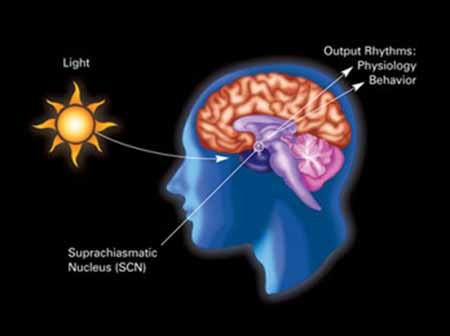Rising star of brain found to regulate circadian rhythms

Islamabad, February 2 (Newswire): The circadian system that controls normal sleep patterns is regulated by a group of glial brain cells called astrocytes, according to a study published in Current Biology, a Cell Press publication.
Neuroscientists from Tufts University School of Medicine found that disruption of astrocyte function in fruit flies (Drosophila) led to altered daily rhythms, an indication that these star-shaped glial cells contribute to the control of circadian behavior.
These results provide, for the first time, a tractable genetic model to study the role of astrocytes in circadian rhythms and sleep
According to the National Institute of Neurological Disorders and Stroke, more than 40 million Americans suffer from sleep disorders. Some sleep disorders arise from changes to the internal clock that is modulated by environmental signals, including light.
Biologically, the internal clock is known to be composed of a network of neurons that controls rhythmic behaviors. Rob Jackson and his team previously had found that normal circadian rhythms require a glial-specific protein. In the new study, the team demonstrates that glia, and particularly astrocytes, are active cellular elements of the neural circuit that controls circadian rhythms in the adult brain.
“This is significant because glia have been traditionally viewed as support cells rather than independent elements that can regulate neurons and behavior. Neurons have had center stage for some time but current research is establishing the role of glial cells in brain function,” said Rob Jackson, PhD, professor of neuroscience at Tufts University School of Medicine (TUSM) and member of the genetics and neuroscience program faculties at the Sackler School of Graduate Biomedical Sciences at Tufts. Jackson is also the director of the Center for Neuroscience Research (CNR) at TUSM.
“We used cellular and molecular genetic techniques to manipulate glial cells in the adult brain of fruit flies and found that such cells regulate neurons of the circadian network and behavior” said first author Fanny Ng, PhD, a postdoctoral associate in the Jackson lab. Ng added, “this is the first study to show that glia can modulate the release of a neuronal factor that is essential for normal circadian behavior.”
Jackson’s team observed altered rhythms in locomotor activity with glial manipulations, an indication the circadian clock had been disrupted, which in humans can contribute to jet lag or serious sleep disorders.
“In order to develop treatments for these disorders, we need to understand their cellular and molecular bases. Our work suggests that Drosophila can serve as a model system for genetic and molecular approaches to understand astrocyte function and astrocyte-neuron interactions. This undoubtedly will contribute to a better understanding of sleep and other neurological disorders that result from circadian dysfunction,” said Jackson.





